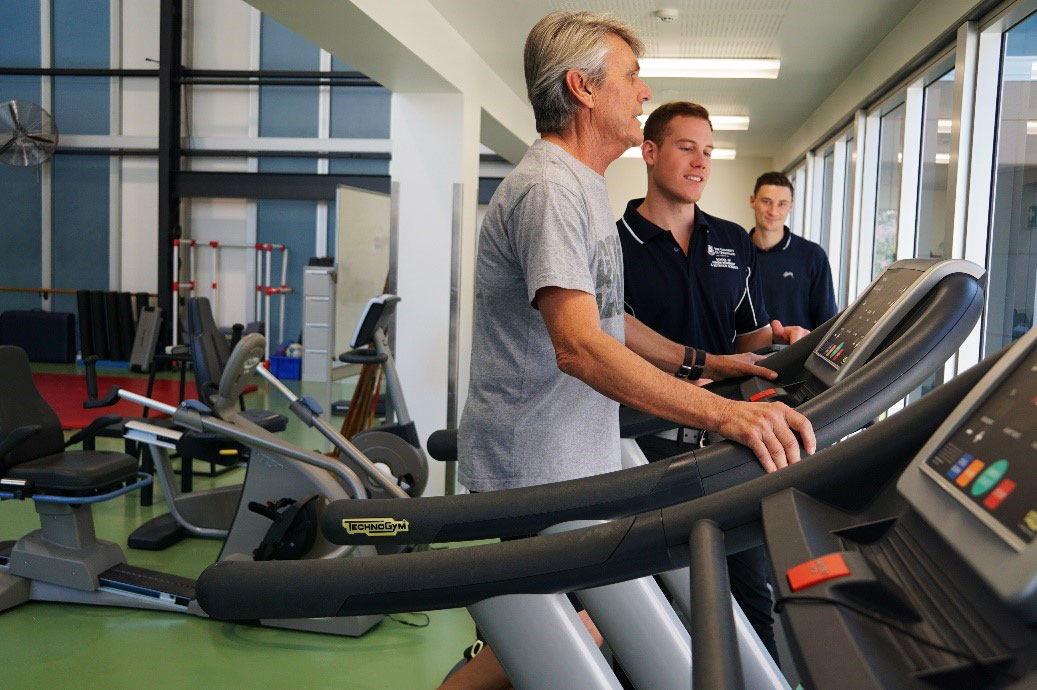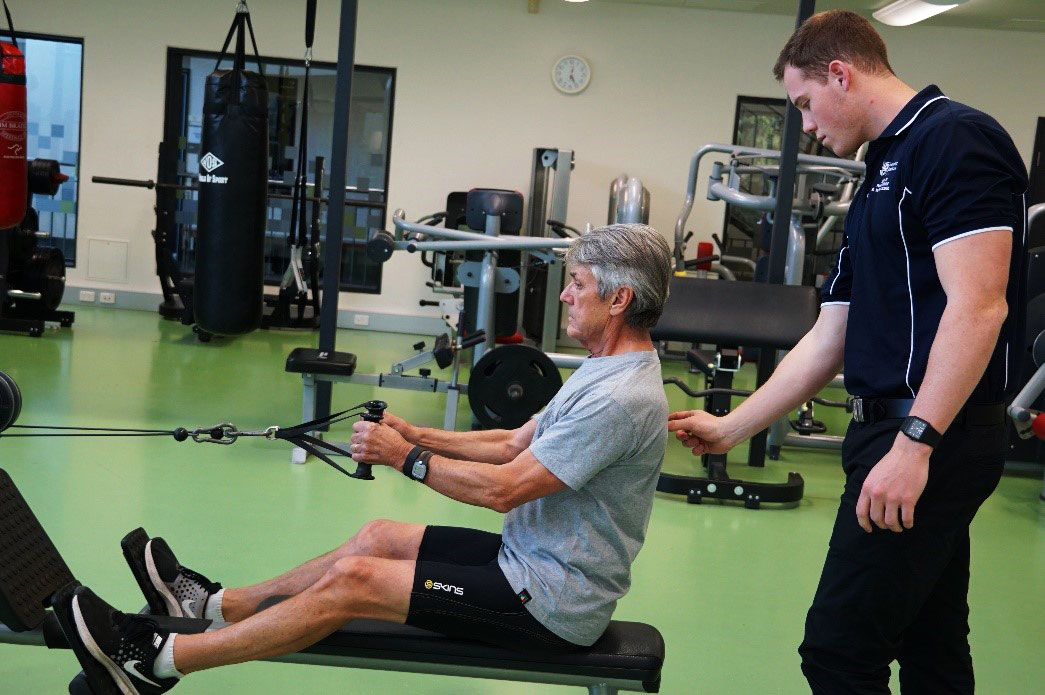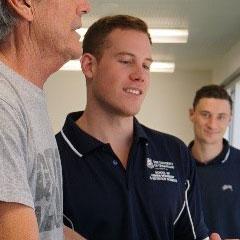Interested in studying exercise physiology? Learn more about the Bachelor of Clinical Exercise Physiology (Honours) at UQ and learn how exercise can treat a range of health conditions and injuries.
A little about the centre
 It is well known that exercise has a positive influence on brain health; however, the exact amount of exercise to reverse the effects of ageing on the brain is still unclear. This is why the Queensland Brain Institute and the UQ School of Human Movement and Nutrition Sciences teamed up to create the centre.
It is well known that exercise has a positive influence on brain health; however, the exact amount of exercise to reverse the effects of ageing on the brain is still unclear. This is why the Queensland Brain Institute and the UQ School of Human Movement and Nutrition Sciences teamed up to create the centre.
Jointly, they are running a world-first clinical program to determine the optimal amount, intensity and type of exercise that might lead to cognitive improvement in the ageing brain. It’s thought that exercise boosts the production of new neurons in the brain, which might improve cognition. Ultimately, the trial hopes to establish clear public health guidelines as to how exercise can both prevent and reverse dementia.
About my role
My key roles in the program are to assist with the screening and assessment of participants, as well as the planning and delivering of exercise interventions.
Screening tests and assessments are conducted before, during, and after the exercise intervention. This enables us to assess the participants exercise and functional capabilities, as well as the effectiveness of the exercise interventions we are delivering. The screening and assessment sessions are extremely comprehensive and are based on a range of medical, exercise and lifestyle factors. When conducting health and fitness measurements we look at the participants’ blood pressure, heart rate, body mass, waist and hip circumferences, and balance and grip strength.
We also conduct what is called a ‘DEXA scan’ and an exercise stress test. The DEXA scan is a really impressive piece of technology which accurately measures lean muscle, fat and bone mass for the whole body as well as separate body parts. The exercise stress test then allows us to look at the participants exercise capacity and how well their heart handles exercise. The combined results from the assessments provide the research team with key data to identify changes in cognitive function, brain volume, cardiorespiratory fitness and body composition following intensity-specific exercise training.
 One of my other key responsibilities is to work closely with participants on planning and delivering different exercise interventions. For this program, the participants have been randomly split into three trial groups, each of which has been prescribed a different type of exercise program - low-intensity, moderate-intensity or aerobic interval training. Each of these exercise programs requires me to play a different role. For instance, when working with participants in the low-intensity exercise group I am required to design different exercise programs for each session which consist of fit balls, balance, stretching, mobility and toning activities. This requires me to supervise exercises including providing guidance and teaching correct technique. When working with the moderate-intensity or aerobic interval training groups, my role is mostly to supervise and provide support and motivation.
One of my other key responsibilities is to work closely with participants on planning and delivering different exercise interventions. For this program, the participants have been randomly split into three trial groups, each of which has been prescribed a different type of exercise program - low-intensity, moderate-intensity or aerobic interval training. Each of these exercise programs requires me to play a different role. For instance, when working with participants in the low-intensity exercise group I am required to design different exercise programs for each session which consist of fit balls, balance, stretching, mobility and toning activities. This requires me to supervise exercises including providing guidance and teaching correct technique. When working with the moderate-intensity or aerobic interval training groups, my role is mostly to supervise and provide support and motivation.
No day working in the clinic is ever the same! Each day presents a new opportunity to learn something new and apply the theory that I have learnt over the past four years of my degree in a professional, challenging and fast-paced environment.
What I have enjoyed the most
This placement opportunity has been the most rewarding experience! It has not only been a unique opportunity to experience what it is like to work in a research setting, but also what it is like to interact with real-life clients on a daily basis.
"Working alongside experienced and extremely knowledgeable Accredited Exercise Physiologists has also been incredible. They have challenged me every day to become a more confident and highly-skilled clinician."
Above all else, one of the most enjoyable parts of this experience has been the relationships I have formed with many of the program participants. It is humbling to have them open up to me about their own lives and experiences. Many of them have shared stories about their family and friends who have been diagnosed with dementia and the effect it has had on them. This experience has really taught me the important of effective communication, and building a level of trust with the clients you work with - a skill which cannot truly be taught in the classroom.
Overall, this has been an incredible opportunity and has certainly helped better prepare me to practice to the best of my ability once I graduate.
Find out more about the study.
Study at UQ
Find out more about the Bachelor of Clinical Exercise Physiology (Honours) at UQ.

